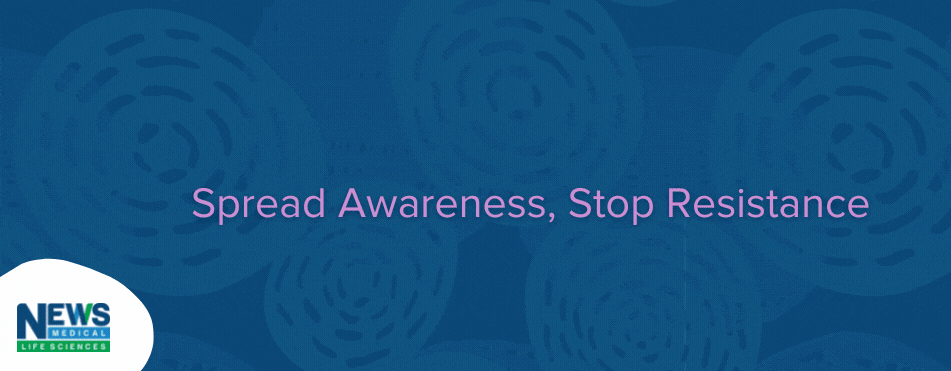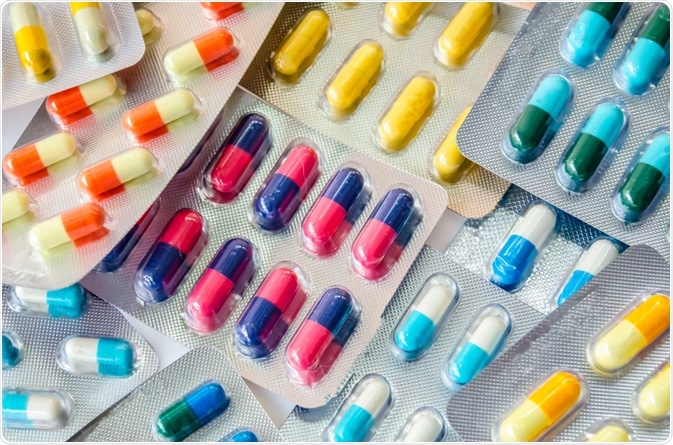
The discovery of antibiotics is arguably one of the great modern medical discoveries.

Image Credit: nokwalai/Shutterstock.com
However, the over-prescription and improper use of the potentially life-saving drug has increased antibiotic resistance. However, new research has found that what you eat may affect antibiotic effectiveness.
Cranberries and Antibiotic Effectiveness
The epidemic of antibiotic resistance poses a threat to decades of progress in antibiotic use to fight bacterial infections.
The overprescription and overuse of antibiotics in medicine and agriculture have led many to argue that we may be forced to a pre-antibiotic era whereby the risk of developing even minimal infections could be costly. In light of this, it has become vital to maximizing the effectiveness of current antibiotics used.
Recent research working towards this aim has found that cranberries may boost the overall effectiveness of antibiotics. Specifically, the researchers observed that pathogenic bacteria develop increased sensitivity to lower doses of antibiotics when exposed to molecules found in cranberries. Furthermore, resistance to the antibiotics was reduced.
It’s commonly believed that, aside from their antioxidant properties, cranberry consumption is linked to positive health outcomes such as protecting against urinary tract infections (UTIs).
This led the researchers to investigate the molecular properties responsible for fighting several types of bacteria, namely, Escherichia coli responsible for gastro-enteritis, Pseudomonas aeruginosa responsible for pneumonia, and Proteus mirabilis responsible for UTIs.
It was found that cranberries increased bacterial sensitivity through two mechanisms. The extract was considered to alter the mechanism typically used by the bacteria to get rid of the antibiotic as well as increasing the permeability of the bacterial cell wall.
This resulted in the antibiotic being able to penetrate the bacteria more easily, and the bacteria struggling to get rid of the drug. This provides evidence as to why the drug appears to be more effective in lower doses.
The researchers suggested that central to this activity are molecules called proanthocyanidins. There are different types of proanthocyanidins and it’s thought that the molecules work together to achieve the effects observed.
Further tests were carried out to investigate whether the same pattern existed in a preliminary animal model: infected insects. Similar effects were established, necessitating further experiments to identify the active molecules involved.
Implications of the Research
The novel research may prove to be extremely useful in combating antibiotic resistance, as, if the results can be replicating in animals and the active molecules identified, then it would mean fewer dosages of antibiotics will be required in veterinary and human medicine. Conversely, the use of these compounds may help ensure that the antibiotics are more effective in their current dosages and administrations.
Considerations When Taking Antibiotics
Several considerations are recommended to be followed when taking antibiotics than can reduce their overall effectiveness in fighting infections alongside the probability of resistance. Different types of antibiotics come with their own set of requirements and guidelines to follow.
Medications and Antibiotics
Like any drug, antibiotics can interact with any other medications taken. Evidence has shown that specific antibiotics such as rifabutin and rifampicin can impair the effectiveness of some contraceptive pills. If prescribed these forms of antibiotics, then additional contraceptive methods are recommended.
Additionally, research has found adverse effects in those taking some forms of antibiotics alongside anticoagulants. Specifically, cephalosporins have been found to increase the risk of bleeding if taken in addition to blood-thinning drugs such as warfarin.
Food and Drink Interactions with Antibiotics
In general, alcohol should not be consumed while taking antibiotics. Even alcohol in moderation can cause interactions with antibiotics if consumed within 48 hours of each other.
Certain antibiotics such as tinidazole and metronidazole can cause side effects such as headaches, stomachache, nausea and vomiting, and hot flushes if taken with alcohol.
Similarly, it’s recommended that antibiotics are not taken with fruit juices or dairy products, as they can affect the body’s ability to absorb the medication. Instead, it is recommended that the drug is taken with water only.
Furthermore, the influence of dairy consumption on the effectiveness of antibiotics has been researched. It’s recommended that dairy products such as cheese, milk, butter, and yogurt should not be consumed until 3 hours after a dose of antibiotics is taken.
Likewise, juices or supplements containing calcium may also reduce effectiveness. Antibiotics should come with patient education material that gives specific guidance on which foods to avoid and how to take antibiotics.
In some countries, antibiotics can be purchased without a prescription. Antibiotic use in these areas tends to be high, as patients often self-medicate for conditions that are not helped with antibiotics and the increased presence of antibiotics provides a selective pressure for germs to develop resistance.
Studies show that these areas with higher use have higher rates of antibiotic resistance.
Sources
- Tufenkji, N. et al. (2019) Proanthocyanidin Interferes with Intrinsic Antibiotic Resistance Mechanisms of Gram-Negative Bacteria. Advanced Science. doi.org/10.1002/advs.201802333.
- NHS (2019). Antibiotics: Interactions. https://www.nhs.uk/conditions/antibiotics/interactions/
- Institute for Quality and Efficiency in Health Care (2013). Using medication: using antibiotics correctly and avoiding resistance. https://www.ncbi.nlm.nih.gov/books/NBK361005/
- Farooqui HH, Selvaraj S, Mehta A, Heymann DL. Community level antibiotic utilization in India and its comparison vis-à-vis European countries: Evidence from pharmaceutical sales data. PLoS One. 2018;13(10):e0204805. Published 2018 Oct 17. doi:10.1371/journal.pone.0204805